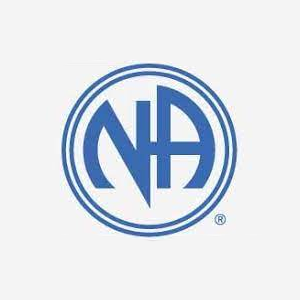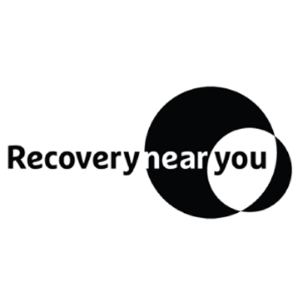Drug & Alcohol Rehab in Wolverhampton

How Does Rehab Work?
Rehabilitation is the process that assists individuals in working towards restoring balance and mental health. Rehab is designed for addressing the patient holistically with individualised therapy aimed at addressing addictive behaviours. With the guidance of a professional therapist or counsellor, coping mechanisms are taught and individuals can access much-needed support. Strategies focus on relapse prevention and clients can be assigned to an extended inpatient programme or move to an outpatient programme. With inpatient rehab (residential rehab), individuals will live at the rehab centre for the duration of treatment. Outpatient services are an alternative option in which clients will attend daily/weekly sessions for therapy but will not attend a full-time programme. There are both free and paid outpatient services available within the UK.
What Happens During Residential Rehab?
Rehab is the first step towards recovery and a substance-free life. It can be hard to work on quitting addictive behaviours on your own but with the support of professional intervention, a substance-free life can be achieved. You may have concerns about the unknown; however, a breakdown of the process can help put your mind at rest.
Rehabilitation commences with an assessment completed by a skilled medical professional. The goal is to investigate your history of substance misuse, and whether pre-existing medical conditions are present. This includes any comorbidities such as mental health disorders that require specialised treatment.
Detox is an important phase of a recovery programme. It involves the safe removal of drugs and/or alcohol from the body. When detox is done under medical intervention, withdrawal symptoms can be controlled, and their severity managed. This can significantly improve the odds of success and minimise relapse.
During rehab, patients will receive therapy. Treatment can be accessed on an inpatient or outpatient basis. Therapy consists of individual counselling including Cognitive Behavioural Therapy, skill-building and group sessions.
1. Assessment

Before treatment can be delivered, a health assessment is provided. This involves an in-depth look at individual medical history, substance use, and the presence of mental health disorders. Patients can be accommodated with a medical assessment by phone. An admissions team will be responsible for the telephone assessment to determine the best form of therapy for your needs. Along with determining a treatment plan, the admissions team or medical staff will have reliable information to facilitate the detoxification.
Whether you or someone you love require professional support to overcome substance addiction, it all starts with an individual assessment. Assessments are vital to the success of therapy because it determines the type of therapeutic approach based on the addiction and potential comorbidities (depression or anxiety).
2. Detox

Detox is a period in which drugs and alcohol are no longer ingested and cleared from the body. It is a process that is best managed by medical staff in an inpatient facility.
The reason medical detoxification from substances is advised is owed to the difficulties and the nature of withdrawal symptoms that may occur during this time. Without reliance on a professional service and medical attention, the risk of relapsing is increased. Individuals who receive detox and an assessment will be required to participate in a therapeutic programme which involves inpatient rehab or outpatient services.
3. Therapy

Therapy begins when the body is rid of drugs and/or alcohol. The choice of being assigned to an inpatient or an outpatient service will depend on the individual assessment, finances and life commitments. Therapy provided in treatment ranges from individual counselling with a therapist, the attendance of group therapy, and emphasis on building positive coping mechanisms as well as life skills.
Step by Step Process for Residential Rehab
To understand your medical and mental health history.
Arrange a suitable date to begin your journey to recovery.
Begin the managed withdrawal process from substances including alcohol.
To understand the root cause of addiction and how to overcome it.
Aftercare is provided to help manage the risk of relapse.
To help heal the wounds that addictive behaviour has caused others.
Find your Nearest Rehab Centre in Wolverhampton
The nearest rehab centre is Which Rehab Drug & Alcohol Rehab Birmingham.
Address: Which Rehab Drug & Alcohol Rehab Birmingham, 334 Summer Ln, Birmingham B19 3RG, United Kingdom
Call 0333 4444 432 to discuss your alcohol or drug rehab requirements and any other questions you may have about the process of residential rehab.
Outpatient Addiction Services in Wolverhampton
From inpatient to outpatient services, the necessary treatment for substance dependence will depend upon the assessment and budget to determine the appropriate treatment for you. If you are interested in the flexibility and the affordability of outpatient addiction services, we look closer at what it entails compared to an inpatient programme.
When you enter into an outpatient programme, you will be required to meet with a therapist, support counsellor, or group worker once or twice every week. Rather than stay at the residence, you can continue to attend to work commitments and care for your family while you receive treatment for addiction.
Private Outpatient services involve therapy with counselling sessions delivered by a therapist/counsellor. Sessions can last between 60 and 90 minutes. Free alternatives do exist through one of the many reputable charities in the UK (Turning Point), but it does not provide the same individualised care that private services provide.
The Benefits of Outpatient Services
Private Outpatient addiction services also provide tailored care for those looking for optimal support and chances of recovery. – Owing to the flexible arrangements provided by outpatient care, it can facilitate a large range of individuals and financial situations. Therapy sessions are typically attended once/twice weekly under the guidance of a certified therapist or counsellor. – It is more cost-effective than an inpatient programme.
The Challenges of Outpatient Services
While one stays at home and takes part in outpatient programmes, they could be at higher risk of relapse due to continual exposure to triggers and easy access to substances. Another point to consider is that free outpatient addiction services – offered by the NHS and other UK-based charities – do not provide a bespoke treatment plan and waiting lists are to be expected.

How Much Does Rehab Services Cost in Wolverhampton?
Drug or alcohol addiction treatment in a residential setting can cost around £1500- £4000 per week. In the event private addiction treatment is not an option, our aim is to guide you to locate the appropriate recovery programme that suits your budget requirements.
The NHS and charities such as Turning Point will require a self-referral to be considered for therapy. You will also find many other affordable services (such as private counselling) or free therapies and community-supported services for those with drug and alcohol dependencies. These groups include AA or Alcoholics Anonymous, Narcotics Anonymous, and Cocaine Anonymous.
Support Groups in Wolverhampton

Wolverhampton St Patrick's Morning
St Patrick RC Church (hall at rear), 299 Wolverhampton Rd, WV10 0QQ

No Matter What Group
Ground Floor Room, St Patrick's Church, 299 Wolverhampton Road, Wolverhampton, West Midlands WV10 0QQ

Wolverhampton Step & Tradition
St Patrick RC Church (hall at rear), 299 Wolverhampton Rd, WV10 0QQ
The Pros and Cons of Seeking Treatment in Your Local Area
Pros
1. You are familiar with the area which may provide a layer of comfort/safety.
2. Loved ones can easily travel to visit or are close by.
3. You could save on the costs of travelling long distances for addiction treatment, or free addiction services may only be offered in your hometown.
Cons
1. A local environment means access to drug dealers or other triggers. This is more of an issue if you opt for outpatient programmes.
2. Failing to consider locations outside your local area could equate to a missed opportunities for more valuable and rewarding programmes.
3. Addiction treatment services nearby do not always offer the best standard of treatment.
In the event you are unsure about a particular addiction treatment service, you can look to the CQC website for more information including a rating of that service.


